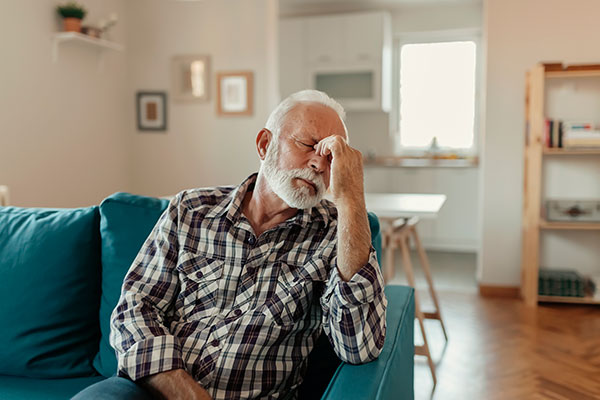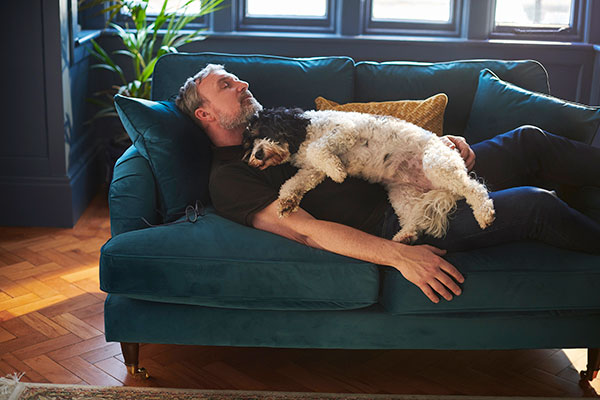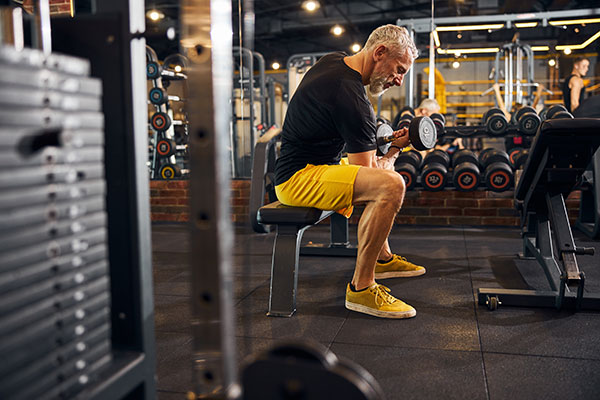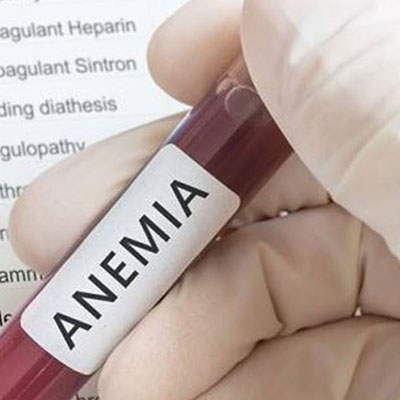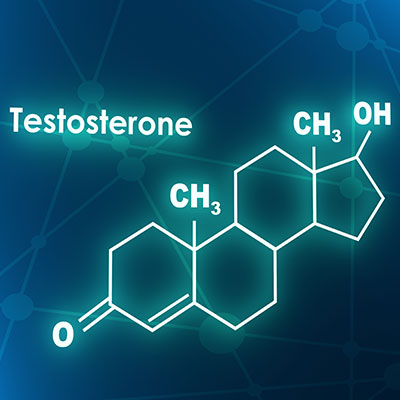Does Low Testosterone Make You Tired?
Contents
Testosterone plays a vital role in how your body creates energy; therefore, low testosterone can make you feel tired.
Among the many processes that testosterone is necessary for, this important male hormone plays a vital role in metabolism, or the way that your body produces energy for your cells from the foods that you eat.
Testosterone also helps to regulate mood and sleep, which is another reason why low testosterone can make you tired. Testosterone is also instrumental in the creation of red blood cells. Low testosterone can lead to a decrease in the production of healthy red blood cells, which can cause anemia which can also make you tired.
As you can see, low testosterone can affect your energy levels in many ways.
Energy Levels and Low Testosterone
Fatigue is a common sign of low testosterone; in fact, for many men dealing with low T, it may be one of the very first signs that you notice. Low testosterone-related fatigue can range from you just simply feeling like you no longer have the energy you used to, to you feeling incredibly tired or exhausted.
Men experiencing low energy may feel tired all the time and may be unable to complete basic tasks without feeling worn out or exhausted.
Other symptoms associated with low energy or fatigue include:
- Feeling sleepy during the day
- Brain fog, or difficulty concentrating
- Lack of motivation
All of the above symptoms can be related to low testosterone in men.
Why Does Your Energy Drop if You Have Low T?
Low testosterone can lead to fatigue in men for a number of reasons.
At the most basic level, when your testosterone drops, one of the many symptoms can be insomnia or disturbed sleep. The disruptions in normal sleep patterns that come with low testosterone alone could account for increased fatigue or a feeling of lack of energy. However, low testosterone leads to declining energy levels and tiredness in a number of other ways.
Besides impacting sleep and causing depression, both of which can make you feel more tired than usual, age-related testosterone loss in men negatively impacts metabolism. As metabolism slows, the conversion of the food you eat into energy decreases. Weakness, weight gain, and chronic fatigue are the result.
Low testosterone in men can also lead to anemia, which is when the body is unable to make enough healthy red blood cells. Less red blood cells decrease the delivery of oxygen to your organs, tissues, and cells which only further contributes to tiredness and lowered energy levels.
Should I See My Doctor About Declining Energy Levels?
Yes. If you are feeling unusually fatigued or more tired than usual, you absolutely should see your doctor. Lack of energy can be a sign of low testosterone, but it can also be indicative of other metabolic conditions or hormonal imbalances. Only your doctor can determine if you are experiencing chronic fatigue due to low testosterone or some other reason.
How Does Testosterone Therapy Increase Energy?
When fatigue in a man is related to low testosterone, testosterone replacement therapy via testosterone injections has been shown to significantly boost energy.
So, just how does testosterone therapy increase energy?
It is quite simple actually. The energy your body needs to function comes from the food that you eat. The calories in the food you ingest are converted into energy for your cells through the burning of fats and conversion of glucose (sugar) into cellular energy. Both of the processes are influenced by your testosterone levels. The conversion of food into energy is driven by your metabolism. Metabolism is the general term for all of the biological process that provides energy for your cells to function.
As we age, metabolism slows. This is largely due to the loss of testosterone and other critical hormones that occurs as men grow older. As your metabolism slows, the ability of your cells to convert food into energy also slows. You begin to feel weak and sluggish. This lack of energy and slowed metabolism can be a downward spiral that leads to related metabolic conditions such as diabetes and obesity. Such conditions will only drop your energy levels lower.
In a nutshell, testosterone increases your energy by raising your metabolism. Testosterone therapy does this in a number of ways. Testosterone injections help you to burn fat and build more lean muscle. Muscle increases your metabolism, even while at rest.
By boosting your metabolism, testosterone replacement also increases your exercise capacity. That lets you exercise more, get more out of your workouts, burn fatter, build more muscle, and even further increase your energy and stamina.
Beyond raising your energy levels by increasing your metabolism and building muscle, testosterone replacement also can improve sleep. Poor sleep and sleep apnea leading to daytime fatigue are common in men with age-related testosterone deficiency. By improving sleep, testosterone therapy will increase your daytime energy.
Does Testosterone Therapy Help Build Muscle?
Not only does testosterone boost your metabolism and provide you with more energy, but it will also allow you to burn fat and build more lean muscle. Testosterone builds muscle by interacting with the androgen receptors within muscle cells. Androgen receptors respond to anabolic hormones like testosterone by signaling muscle cells to increase the rate at which new muscle protein is produced. Over time, this increase in protein synthesis leads to bigger, stronger muscles.
Legally prescribed testosterone injections can help build lean muscle. In fact, increasing your ability to build lean muscle is one of the main benefits of testosterone replacement therapy. There are many forms of testosterone therapy available; however, studies have found that testosterone injections are the most effective at improving your body’s ability to build lean muscle.
Several meta-analyses (taking the combined data from several studies) have shown that testosterone therapy increases lean body mass and muscle strength in middle-aged and older men. These analyses also determined that testosterone injections were as much as 3 to 5 times more effective at increasing muscle mass, as opposed to gels and other testosterone therapy preparations.
What Do the Studies Say About Testosterone and Strength and Energy?
A 2011 study on testosterone and increasing lean muscle mass found that the ideal “target” to build muscle was a range between 898 ng/dL and 1046 ng/dL. However, even that study concluded, “To enhance muscle strength and physical function, threshold improvements in lean body mass and appendicular skeletal muscle mass are necessary, and these can be achieved by targeting changes in testosterone levels.”
A 2009 study concluded that “Restoring testosterone levels to within the normal range by using testosterone replacement therapy can improve many of the effects of hypogonadism. Most importantly, these include beneficial effects on mood, energy levels, and patients’ sense of well-being, sexual function, lean body mass and muscle strength, erythropoiesis and bone mineral density (BMD), cognition, and some benefits on cardiovascular risk factors.”
A 2019 study published in the International Journal of Environmental Research and Public Health, that particularly looked at the impact of testosterone replacement therapy (TRT) on “sex, energy, and well-being” concluded, “Effects noticed by TRT patients were mostly positive and consisted of increased energy, libido, and muscle. At the moment, it appears that these TRT patients sought and found a source of well-being, increased energy, and sexual interest, with some gain of muscle and loss of fat too.”
The Testosterone Trial is a multicenter study of six coordinated trials of 800 men with low testosterone. One of those six trials specifically looked at anemia. The Anemia Trial of the Testosterone Trials drew the following conclusions:
- Testosterone treatment of older men with low testosterone levels and unexplained anemia corrected the anemia more than placebo. This treatment also corrected anemia more than placebo in men who had anemia of known causes, such as iron deficiency.
- Testosterone deficiency in older men results in decreased hemoglobin levels, which can cause anemia.
- Correcting testosterone deficiency increases hemoglobin levels and tends to correct the anemia, even in the presence of a coexisting cause of anemia (such as iron and/or vitamin B12 deficiencies, chronic inflammation).
The overall conclusion of the trial started, “[our results] suggests that the increase in hemoglobin levels and amelioration of anemia with testosterone treatment is clinically meaningful.”
Overall, the TTrials were a coordinated set of seven placebo-controlled, double-blind trials in 788 men with a mean age of 72 years, designed to determine the efficacy of increasing the testosterone levels of older men with low testosterone through the use of testosterone replacement therapies.
The findings of the Testosterone Trials were published in March of 2018. The key takeaways from the TTrials were that for older men with low testosterone, testosterone treatment for one year:
- Improved all aspects of sexual function
- Improved energy, strength, and mobility
- Improved mood and depressive symptoms
- Markedly increased bone mineral density and estimated bone strength.
Now that you know a lot more about low testosterone and energy, why not take a minute to contact us and learn more about the many other life-changing benefits of testosterone therapy?

